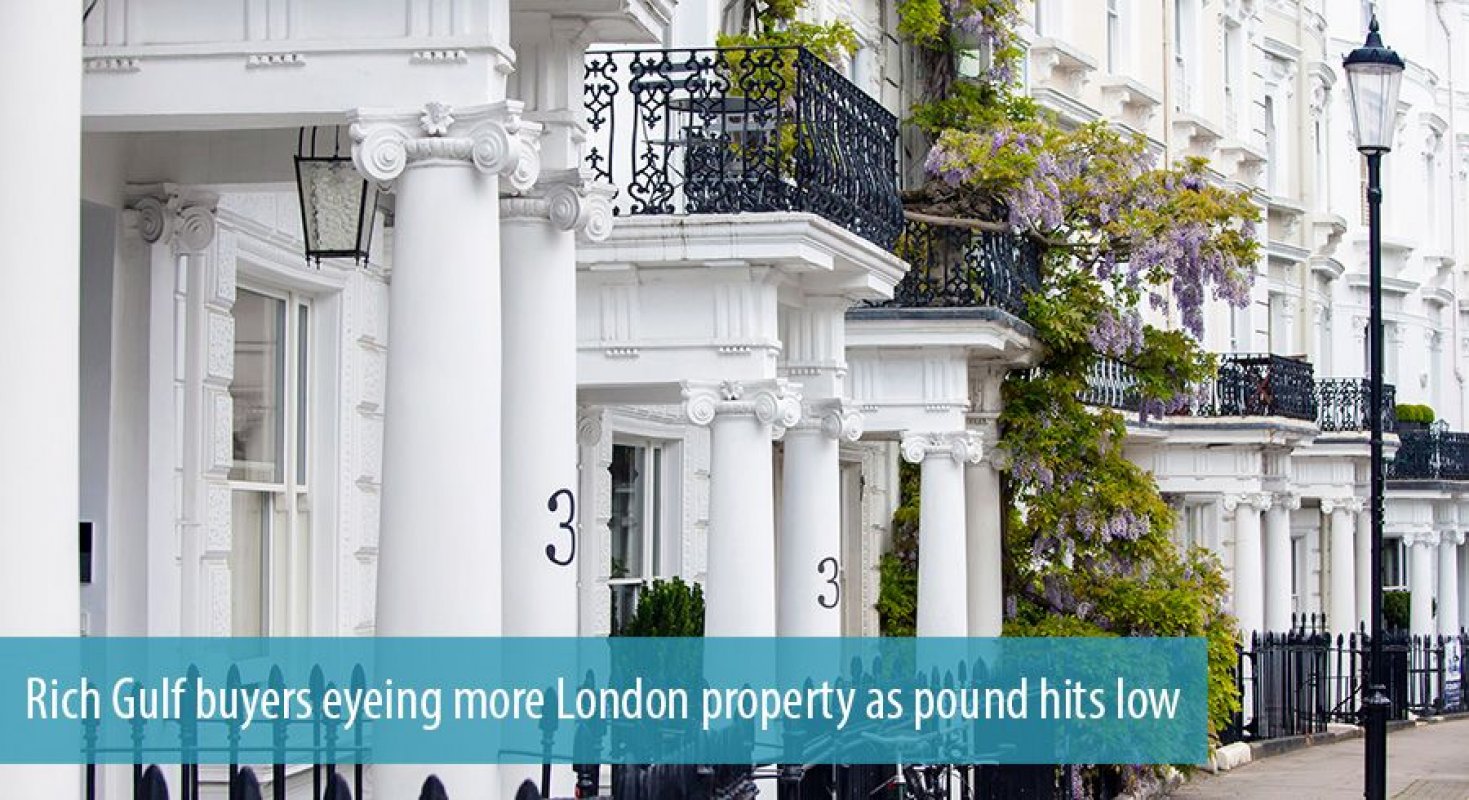The declining value of the pound has made investment in the UK’s property market increasingly attractive among Middle Eastern buyers. According to new research, the region is taking mounting interest in prime London property in particular.
Having briefly rallied in late 2021, the value of the British pound has been steadily decreasing in 2022, and hit its lowest level against the dollar in two years, as of late June. In contrast, the Saudi Riyal has been gaining value, on the back of the country’s 2030 plans to diversify the economy away from oil. Many other Gulf economies are following suit, and this is seeing them peak while the UK’s falls into another trough.
These developments are helping fuel a noticeable surge in property interest from Gulf based real estate buyers, according to global consultancy firm Knight Frank.
The rich and powerful of the Middle East have long made a habit of purchasing luxury homes in elite postcodes – central London being the prime example of this.
Henry Faun, Partner and Head of Private Office at Knight Frank in the Middle East, commented, “The UK and specifically the central London market remains key in the portfolios of our Gulf-based clients. The weaker Pound combined with the ease of travel this year has assisted high net worth clients with their acquisition decisions.”
The UK’s education remains one of the drivers for this demand, as wealthy individuals look to provide an unparalleled start for their children, from luxury homes in the capital. The super-rich have bought prime residential properties in Knightsbridge, Mayfair, Kensington, Belgravia and Regent's Park.
According to Wetherell Estates, this has become so regular that half of all buyers of Mayfair property worth more than £10 million are now residents from the GCC. This is not the only motive behind the boom, though.
Many are also investing with the intent of making large amounts of money as landlords. Since 2006, Middle Eastern governments and sovereign funds have been particularly focused on sinking resources into the UK, buying development sites and high-value buildings worth a combined £4.4 billion. As a result, they now control nine of central London's largest development sites, equating to 28,000 new homes.
Looking at the longer term trajectory, Knight Frank’s experts expect that prices in Prime Central London will outperform most other UK markets over the next five years, due to international buyers like those from the Gulf. As they continue to return to buying property in the capital in large numbers, the trend will likely accelerate.
Ashley Bayliss, Head of Debt & Mortgage Advisory at Knight Frank in the Middle East, added, “UK interest rates have recently risen in-line with other international markets, however, the investment case for UK real estate remains compelling when considering both the continued potential for growth and current weakness in GBP. UK mortgage lending is very accessible to Middle Eastern residents, of all nationalities, with Islamic financing options also available.”
Middle Eastern purchasers are not the only ones vying for a slice of London’s real estate, either. The UK is the top market globally for cross border commercial real estate investment, with $18.3 billion invested year to date and London remains as the most invested city worldwide for overseas capital.
Each economic dip seems to bring a rise in interest from a new group. In the years following the UK’s Brexit vote, for example, economic uncertainty saw the pound decline rapidly – and Chinese purchasers hunting bargains flock to the capital as a result. In the first half of 2017 alone, £5 billion in Chinese capital was sunk into Britain’s capital city, as the low pound continued to make it an attractive prospect, despite an unclear future for links with the continent.
Retrieved from :https://www.consultancy.uk/news/31613/rich-gulf-buyers-eyeing-more-london-property-as-pound-hits-low (24 June, 2022)
The information provided on this website is for reference only. C21 International shall not be liable for any errors, omissions, misstatements, or misrepresentations (express or implied), concerning any Information, and shall not have or accept any liability, obligation, or responsibility whatsoever for any loss, destruction, or damage (including without limitation consequential loss, destruction or damage) howsoever arising from or in respect of using, misusing, inability to use, or relying on the Information.
International News

Rich Gulf buyers eyeing more London property as pound hits low
2022.6.24
United Kingdom
west
Mortgage rates: has the base rate hike had an impact?
2022.6.21
United Kingdom
Covid couldn’t cool house prices, but the economic chill might
east
2022.6.26
United Kingdom
Subscribe Newsletter
Sign up to get the latest events, market news & exclusive projects.
